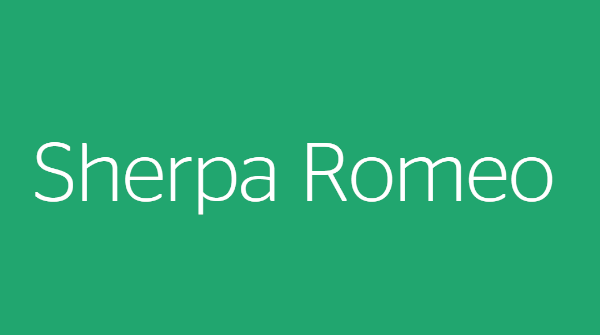The influence of cultural change on communication skills in children of basic education
DOI:
https://doi.org/10.35622/j.ro.2022.02.002Keywords:
communication skills, dialect, culture, cultural changeAbstract
This proposal arises from the need to respond to the educational needs of the migrant population, due to the fact that currently the number of Venezuelan students has increased in all educational institutions in the department of Arauca because they are in the border area, for what, the communication between the students has changed the dialect, since words from another culture are used, such as, coleto that means ragpicker, brush that is broom, pen is water hose, joke to name anything, naguara to admire something among other words that have another meaning about understanding reality and that presents a latent difficulty that is there, but that has not been paid attention to, such as the teaching of the curriculum as it was created years ago and that It should not be so due to the growing cultural change of the territory that influences in a certain way the interaction of individuals within the classroom to the community. take place orally and in writing. For its part, in the reading-writing process, one of the most important in the development of communicative skills, continues to teach letters with colloquial vocabulary, ignoring the new dialect introduced by the Venezuelan community to the Llanera region and that on many occasions puts them at a disadvantage. by not knowing the terms used by the llaneros making it difficult to understand the contents, therefore, it is of great importance to know how cultural change intervenes in the development of communication skills.
References
Abatedaga, N.; Alcaraz, C.; Armano, B. (2014). Investigación - acción participativa: metodologías en organizaciones de gestión horizontal. Córdoba: Brujas. 41-94. Recuperado de la base de datos E-libro.
Alcalá del Olmo Fernández, M. J. Santos Villalba, M. J. y Leiva Olivencia, J.J. (2020). Metodologías activas e innovadoras en la promoción de competencias interculturales e inclusivas en el escenario universitario. European Scientific Journal, ESJ. 16(40),6. Recuperado de: https://doi.org/10.19044/esj.2020.v16n41p6. DOI: https://doi.org/10.19044/esj.2020.v16n41p6
Bernal Betancur Carlos, A. (2021). Educación bilingüe utilizando como recurso la competencia comunicativa intercultural en grado once de una institución pública de Dosquebradas, Colombia, (Doctorado en Ciencias de la Educación), Universidad Tecnológica de Pereira. https://cutt.ly/iXic2PL
Bolívar, A. (1996). Cultura escolar y cambio curricular. Bordón, 48 (2), 169-177.1 https://cutt.ly/dXic0zL
Castro, R. (2006). Las TIC como instrumento cultural, intercultural, de naturaleza mediada. Dpto. de Didáctica de la Lengua y la Literatura. Universitat de Barcelona. https://cutt.ly/FXicB0v
Carbonell, M. Rodríguez, J. García, R & Gutiérrez, R (2007). Discriminación, igualdad y diferencia política, Investigación y análisis, México. https://www.corteidh.or.cr/tablas/27899.pdf
Cova Jaime, Yaritza. (2012). La comprensión de la escucha. Letras, 54(87), 98-109. http://ve.scielo.org/scielo.php?script=sci_arttext&pid=S045912832012000200005&lng=es&tlng=es.
De Vicente Dolores, P. (2017). Actitudes y concepciones pedagógicas hacia la diversidad cultural y la interculturalidad en el contexto universitario: un estudio con alumnado de grado de educación primaria, (Tesis doctoral), Universidad de Málaga, https://cutt.ly/IXicXz6
De Oliveira Figueiredo, G. (2015). Investigación Acción Participativa: una alternativa para la epistemología social en Latinoamérica, Universidad Pedagógica Experimental Libertador Upel. https://www.redalyc.org/journal/3761/376144131014/html/
Díez, E.J. (2013). Investigación-‐acción participativa: el cambio cultural con la implicación de los participantes. Revista Electrónica Interuniversitaria de Formación del Profesorado, 16(3), 115131. https://revistas.um.es/reifop/article/view/186171/157611 DOI: https://doi.org/10.6018/reifop.16.3.186171
Escobar Chaverra, Brayan. (2019). El proyecto de aula como movilizador de la interculturalidad en los estudiantes del grado cuarto de la Institución Educativa San Benito, (Trabajo de investigación), Universidad de Antioquia. https://cutt.ly/7XicGl2
Federación de enseñanza de CC.OO. de Andalucía. (2010) Revista digital para profesionales de la enseñanza, Temas para la educación. https://www.feandalucia.ccoo.es/docu/p5sd7180.pdf
Hernández - Sampieri, R.; Mendoza, C. (2018) Metodología de la investigación: las rutas cuantitativa, cualitativa y mixta. Ciudad de México: Mc Graw Hill Interamericana Editores. Pg 310 - 386, 569 - 608. https://cutt.ly/6XicSjs
Herrera Johana, Calero Yadira, Amelia Ruiz Rosa, Peñalba David, Martínez Luisa, A.y Umaña, F. (2016). Material didáctico de aprendizaje, módulo: Habilidades comunicativas, Universidad Nacional Agraria. https://cenida.una.edu.ni/documentos/nc10u58mt.pdf
Góngora González, A. (2012). Caracterización sociocultural de la comunidad de la facultad de ciencias técnicas en la universidad de las tunas, Universidad de las Tunas Vladimir Ilich Lenin. https://cutt.ly/JXicPoi
Ministerio de Educación (2019). Sistema Educativo Colombiano. Ministerio de Educación. Recuperado de https://www.mineducacion.gov.co/1759/w3-article-231235.html
Monsalve Upegui, M. E., Franco Velásquez, M. A., Monsalve Ríos, M. A., Betancur Trujillo, V. L., & Ramírez Salazar, D. A. (2011). Desarrollo de las habilidades comunicativas en la escuela nueva. Revista Educación Y Pedagogía, 21(55), 189–210. https://revistas.udea.edu.co/index.php/revistaeyp/article/view/9766
Piñero M., Ma. Lourdes y Colmenares E., Ana Mercedes LA INVESTIGACIÓN ACCIÓN. Una herramienta metodológica heurística para la comprensión y transformación de realidades y prácticas socioeducativas. Lauro. 2008;14(27):96-114. ISSN: 1315-883X. https://www.redalyc.org/articulo.oa?id=76111892006
Rodríguez Benítez Mónica, R. (2021). ¿Qué formación en educación intercultural recibe el alumnado del grado de educación primaria de la universidad de Cádiz? (Trabajo de máster), Universidad de Cádiz, https://cutt.ly/ZXicU0S
Usma Restrepo Diego A, Moya Pachón Angelica, M. (2017). Propuesta intercultural para la enseñanza de cursos de español como lengua extranjera en Colombia. http://www.scielo.org.co/pdf/leng/v45n1/0120-3479-leng-45-01-00115.pdf DOI: https://doi.org/10.25100/lenguaje.v45i1.4616
Published
Issue
Section
License
Copyright (c) 2022 Adriana Malagón

This work is licensed under a Creative Commons Attribution 4.0 International License.













